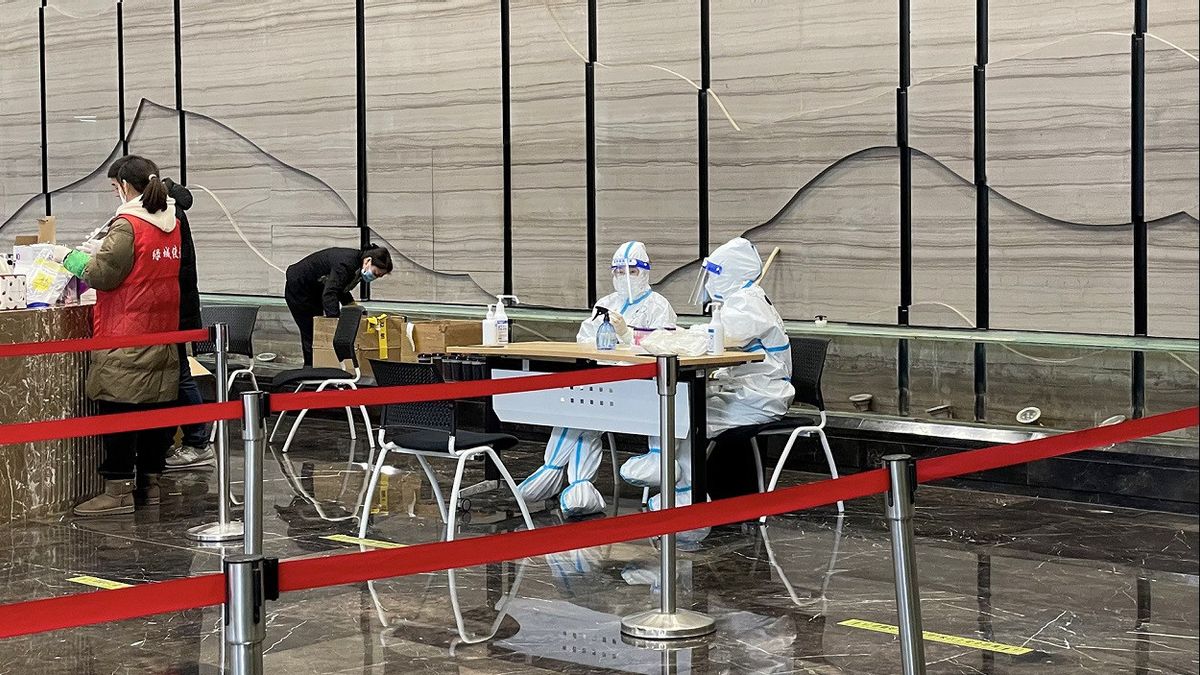JAKARTA - Residents of the Chinese capital were allowed to enter parks, supermarkets, offices and airports without a negative COVID-19 test on Tuesday, the latest policy of a series of national easing measures following unprecedented protests against a tough zero-COVID policy.
"Beijing is preparing to come back to life," the main headline in the state-owned China Daily newspaper, added that people "gradually embrace" the newly discovered freedoms.
Chinese authorities have relaxed some of the world's toughest COVID-19 restrictions to various levels and softened their stance on the threat of the virus, with the hope that many could mark a more noticeable change towards normal circumstances three years after the pandemic.
"This may be the first step towards reopening," Hu Dongxu, 27, told Reuters as he swiped his travel card to enter a train station in Beijing, which also eliminates the need for tests to use subways.
While they were waiting for news, some people were worried the virus might now spread faster, rushing to buy COVID antigen kits and fever medicines, while market regulators issued warnings against hoarding and rising prices.
The two airports in the city also no longer require people to take tests to enter terminals, report state media, although there is no indication of changing rules for negative tests before boarding the plane.
The easing of the rules comes after a series of protests last month, marking China's largest public dissatisfaction in mainland China since President Xi Jinping came to power in 2012.
Separately, China may announce 10 new easing steps on Wednesday, two sources familiar with the matter told Reuters.
The prospects for relaxation have sparked optimism among investors that the world's second-largest economy will strengthen again and help boost global growth.
But on the pitch, many people are slowly adapting to the changing rules. Commuter traffic in major cities like Beijing and Chongqing remains below normal levels.
Some people remain vigilant against the virus, especially the elderly, while there are concerns about tensions that could be caused by easing in fragile health systems.
"My parents are still very careful," said James Liu, 22, from Shenzhen City in the southern province of Guangdong, where authorities revoked testing requirements to enter the family housing complex.
It is known, China had reported 5,235 COVID-related deaths as of Monday, but some experts have warned that the number of casualties could rise above 1 million if it was too hasty to relax the rules.
"The most difficult period has passed," the official Xinhua news agency said in a comment on Monday, citing the weakening of viral pathogenicity and efforts to vaccinate 90 percent of the population.
The English, Chinese, Japanese, Arabic, and French versions are automatically generated by the AI. So there may still be inaccuracies in translating, please always see Indonesian as our main language. (system supported by DigitalSiber.id)













